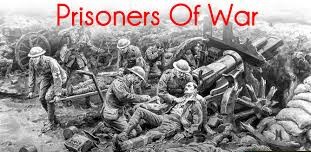The treatment of prisoners of war (POWs) is a topic of significant legal and humanitarian importance. As conflicts persist around the globe, understanding the legal frameworks governing POWs is crucial for ensuring humane treatment and upholding international standards. This article delves into the legal frameworks, recent amendments, and pertinent case laws related to POWs.
In modern warfare, the complexity and scale of conflicts have evolved, leading to intricate legal and ethical challenges in treating POWs. The rapid advancement of technology and the rise of non-state actors in armed conflicts necessitate a robust and adaptive legal framework. This article aims to dissect these frameworks and highlight recent legal developments and case laws that shape the current landscape of POW treatment.
Legal Framework Governing Prisoners of War
The primary legal framework for treating POWs is encapsulated in the Geneva Conventions, particularly the Third Geneva Convention of 1949. This convention outlines comprehensive rules for the humane treatment of POWs, including provisions on their capture, internment, treatment, and release. The key principles which are mentioned in articles 13,14,15 and 16 of the Third Geneva Convention of 1949 include :
1. Humane Treatment: POWs must be treated humanely at all times. Violence, intimidation, and degrading treatment are prohibited.
2. Health and Sanitation: Adequate food, shelter, and medical care must be provided to ensure the health and well-being of POWs.
3. Communication and Correspondence: POWs can communicate with their families and receive relief parcels.
4. Labor: POWs may be required to work, but the nature of the work must not be detrimental to their health or safety, and they must be remunerated.
Recent Amendments and Developments
While the Geneva Conventions have remained largely unchanged since their inception, there have been various supplementary protocols and national legislation that enhance and adapt these rules to contemporary contexts.
1. Protocol I (1977) and Protocol II (1977): These additional protocols to the Geneva Conventions address the protection of victims in international and non-international armed conflicts, respectively. They expand protections, including those for POWs, by recognizing new forms of warfare and the participation of irregular combatants.
2. Recent National Legislation: Various countries have updated their military manuals and national laws to reflect the evolving nature of warfare and the status of combatants. For example, the United States “Detainee Treatment Act of 2005” prohibits cruel, inhuman, or degrading treatment or punishment of persons under the custody or control of the U.S. government, reinforcing the humane treatment standards of the Geneva Conventions.
Case Laws About POWs
Several recent case laws have further shaped the legal landscape for POWs. These cases often deal with the nuances of POW status and the application of humanitarian laws.
1. Hamdan v. Rumsfeld (2006): This U.S. Supreme Court case addressed the legality of military commissions set up to try detainees at Guantanamo Bay. The Court held that the commissions violated both the Uniform Code of Military Justice and the Geneva Conventions, emphasizing the importance of compliance with international legal standards in the treatment of detainees.
2. International Criminal Tribunal for the Former Yugoslavia (ICTY): In cases like Prosecutor v. Tadić, the ICTY has reinforced the application of Geneva Conventions’ principles. The tribunal’s decisions have contributed to the jurisprudence on the humane treatment of POWs and the accountability for war crimes.
3. The Bemba Case (International Criminal Court): In The Prosecutor v. Jean-Pierre Bemba Gombo, the ICC found Bemba guilty of war crimes and crimes against humanity, including the treatment of POWs. This case highlights the role of international courts in upholding the rights of POWs and the enforcement of humanitarian law.
4. Kulbhushan Jadhav Case: In 2016, the Indian national Kulbhushan Jadhav was sentenced to death by a Pakistani military court on charges of espionage and terrorism. The case was taken to the International Court of Justice (ICJ), which in 2019 ordered Pakistan to review and reconsider the conviction and sentence. The ICJ also ruled that Pakistan had violated Article 36 of the Vienna Convention on Consular Relations by not informing Jadhav of his rights. This case underscores the importance of consular access and fair trial guarantees for individuals accused of espionage, which can parallel the treatment issues of POWs.
5. India-Pakistan POWs (1971): Following the Indo-Pakistani War of 1971, numerous POWs were taken by both sides. The Shimla Agreement of 1972 facilitated the return of POWs and addressed the humanitarian concerns arising from their treatment. The agreement emphasized the need for the humane treatment of POWs by the Geneva Conventions and set a precedent for future conflicts in the region.
Challenges and Future Directions
Despite the robust legal frameworks, challenges remain in the consistent application and enforcement of POW protections. Issues such as the classification of combatants, the treatment of irregular fighters, and the application of laws in non-traditional conflict zones complicate the implementation of international standards.
1. Combatant Status: The classification of individuals as POWs or unlawful combatants remains contentious, particularly in the context of terrorism and asymmetric warfare. This distinction affects the protections afforded under the Geneva Conventions.
2. Enforcement Mechanisms: Ensuring compliance with international humanitarian law relies on the willingness of states and the effectiveness of international bodies. Strengthening mechanisms for accountability and oversight is essential for the future.
3. Technological Warfare: The advent of cyber warfare and autonomous weapons presents new challenges for the legal frameworks established for traditional forms of warfare. Adapting international laws to these emerging technologies is critical.
Conclusion
The legal framework governing prisoners of war, primarily established by the Geneva Conventions, remains a cornerstone of international humanitarian law. Recent amendments, case laws, and ongoing developments highlight the dynamic nature of this field. Ensuring the humane treatment of POWs amidst evolving warfare practices is a continuing challenge that necessitates robust legal mechanisms, vigilant enforcement, and a commitment to international standards. As conflicts evolve, so too must our legal frameworks to ensure the protection and dignity of all individuals affected by war.
Contributed by : Sahej sehgal [Intern]

